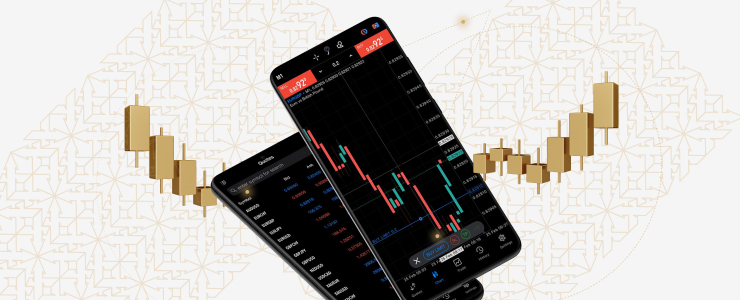Der Devisenhandel ist entgegen der landläufigen Meinung eine äußerst schwierige Form der Finanzgeschäfte. Der Devisenmarkt ist unvorhersehbar, langfristig nahezu unmöglich vorherzusagen und ständigen Veränderungen unterworfen. Es gibt so viele Faktoren, die den Devisenhandel beeinflussen, dass es für eine einzelne Person, selbst für erfahrene Devisenhändler, nahezu unvorstellbar ist, ihn vollständig zu durchschauen.
Denken Sie einmal darüber nach: Wie viele Faktoren fließen beispielsweise in die Berechnung der wirtschaftlichen Gesundheit eines riesigen Finanzgebiets wie den USA ein? Betrachtet man nur die Ereignisse im Inland, so sind dies Beschäftigungsdaten, die Politik der Zentralbank, politische Ereignisse, die Gesundheit des Aktienmarktes, die allgemeine Industrie, bestimmte Branchen und deren Auswirkungen auf den Gesamtmarkt und vieles mehr. Dann gibt es noch internationale Ereignisse: diplomatische Beziehungen, Handelsbilanzen und wie sich Ereignisse in anderen Ländern auf die globale Machtverteilung auswirken.
Und denken Sie daran, dass Devisen in Paaren gehandelt werden. Selbst wenn Sie von Ihrer USD-Analyse überzeugt sind, müssen Sie diese auch für mindestens ein weiteres Land oder einen weiteren Wirtschaftsblock durchführen. Und das alles für ein einziges Devisenpaar.
Viele Devisenhändler sind unvorbereitet, bringen nicht die erforderliche Anstrengung auf und halten sich nicht an intelligente Handelsroutinen. Es ist daher nicht verwunderlich, dass 70 bis 90 % aller Devisenhändler scheitern, je nach Broker.
Dieser Artikel beleuchtet die Fehler, die die meisten neuen Devisenhändler machen, und erklärt, wie man sie vermeiden kann, indem man sich dem Markt mit einer gesunden, auf Wachstum ausgerichteten Denkweise nähert.

Gurus und Influencer für Devisenhändler
Mit der wachsenden Beliebtheit von Devisenhandel und Privatkundenfinanzierung sind auch falsche Gurus aus dem Nichts aufgetaucht. Diese Leute behaupten, dass der Devisenhandel eine einfache Möglichkeit sei, zusätzliches Einkommen zu erzielen, und gehen sogar so weit zu behaupten, dass Händler mit bestimmten Taktiken kein Geld verlieren können.
Das ist offensichtlich falsch. Empfehlungsprogramme, Followerzahlen und allgemeiner Einfluss veranlassen Gurus und Influencer dazu, den Menschen das zu sagen, was sie hören wollen. Dies kann jedoch unglaublich schädlich sein, insbesondere wenn ihre Follower dazu verleitet werden, mehr zu investieren, als sie sich leisten können, zu verlieren.
Nicht alle Influencer und Gurus sind schlecht. Einige versuchen aufrichtig, ihr Publikum aufzuklären und eine gesunde Trading-Community aufzubauen.
Es ist jedoch ratsam, sie zu vermeiden, wenn:
- Sie versprechen einfache Gewinne.
- Sie betonen die Einfachheit des Marktes.
- Sie verlassen sich zu sehr auf technische Analysen und behaupten, dass, wenn ein bestimmtes Muster in einem Diagramm auftritt, etwas Bestimmtes passieren muss.
- Sie ermutigen die Menschen, sich schnell zu registrieren oder eine Einzahlung zu tätigen.
- Sie machen Versprechungen, die unrealistisch klingen.
Menschen zu meiden, die es nicht gut mit Ihnen meinen, ist der erste Schritt, um im Devisenhändler Fuß zu fassen. Zu wissen, was man nicht falsch machen sollte, ist jedoch nicht dasselbe wie zu wissen, wie man etwas richtig macht. Das bringt uns zu unserem nächsten Punkt.
Bildung über alles
Manche Menschen interessieren sich nicht wirklich für den Devisenhandel, sondern nur dafür, ihre Einnahmen zu steigern. Diese Menschen sehen den Devisenhandel als einen Weg, um ihre Ziele zu erreichen, wollen sich aber nicht mit den Details beschäftigen.
Leider gibt es im Devisenhandel keine Abkürzungen. Wer nicht die erforderliche Anstrengung aufbringt, wird irgendwann scheitern.
Daher müssen sich Händler mit den wichtigsten Konzepten und zugrunde liegenden Mechanismen vertraut machen, die den Devisenmarkt antreiben. Das mag einschüchternd klingen, ist aber weit weniger beängstigend, als sich unvorbereitet ins Getümmel zu stürzen und schwere Verluste zu erleiden.
Es ist auch viel weniger beängstigend, wenn man versteht, dass man keine Hochschulausbildung benötigt. Man muss lediglich die Grundprinzipien verstehen, wie Dinge funktionieren, und darauf aufbauen. Allgemeine wirtschaftliche Grundsätze wie Opportunitätskosten, Angebot und Nachfrage sowie die Funktionsweise spekulativer Märkte sind ein guter Ausgangspunkt.
FX-spezifische Ausbildung für Devisenhändler
Sobald Händler sich allgemeine Kenntnisse über die Märkte angeeignet haben, können sie sich der Forex-Ausbildung zuwenden. Die Terminologie ist ein guter Ausgangspunkt, da sie Händlern hilft, die Artikel und Lernmaterialien zu verstehen, mit denen sie konfrontiert werden. Im Großen und Ganzen ist es am besten, unbekannte Begriffe zu googeln und dann, wenn die Erklärung nicht ausreicht, KI-Tools zu befragen.
Einige wichtige Begriffe sind:
- Marge/Hebelwirkung
- Pips
- Viel
- Geldkurs/Briefkurs
- Bulle/Bär
Darüber hinaus hilft das Verständnis von Geldpolitik, Inflation, Zinssätzen und ähnlichen Themen erheblich dabei, den Devisenmarkt zu verstehen. Sobald Trader all dies fest im Griff haben, ist es an der Zeit, sich der Analyse des Marktes zuzuwenden.
Die beiden grundlegenden Arten der Analyse sind fundamentale und technische Analysen. Bei der fundamentalen Analyse geht es um das, was wir zu Beginn des Artikels erwähnt haben: die zugrunde liegenden Prinzipien, die Preisbewegungen bewirken. Die technische Analyse hingegen konzentriert sich auf den Markt selbst, mit Faktoren wie Trends, Chartanalysen, Indikatoren und der Wertentwicklung in der Vergangenheit.
Als Nächstes sollten Sie sich mit der Handelssoftware vertraut machen. MetaTrader 4 ist die bekannteste Plattform und daher für die meisten Händler ein guter Ausgangspunkt. Eine gute Möglichkeit hierfür ist es, ein Demokonto bei einem Broker zu eröffnen und einem der vielen online verfügbaren Tutorials zu folgen, um die wichtigsten Funktionen kennenzulernen.
Der letzte Schritt besteht darin, eine Strategie zu wählen und sich intensiv mit den spezifischen Vermögenswerten zu befassen, für deren Handel Sie sich interessieren. Dieser Schritt ist der komplexeste und hängt von vielen Faktoren ab, wie z. B. der Zeit, die Sie für den Handel aufwenden möchten, und Ihren Präferenzen als Trader.
All dies kann ein langwieriger Prozess sein, aber es ist viel besser, sich Zeit zu nehmen, als die Dinge zu überstürzen. Unvorbereitetheit ist eine der häufigsten Fallstricke beim Devisenhandel. Durch eine gute Vorbereitung verschafft sich ein Trader daher eine viel bessere Ausgangsposition.

Risikomanagement
Der zweithäufigste Grund, warum Trader scheitern, ist, dass sie sich zu viel zumuten. Sie tätigen ein paar gute Trades, glauben, alles unter Kontrolle zu haben, und dann machen ein paar große Verluste ihren gesamten Fortschritt zunichte und noch einiges mehr.
Risikomanagement ist ein wichtiger Aspekt des Handels. Ohne Risikomanagement ist es unmöglich, langfristig erfolgreich zu sein. Und obwohl das Risikomanagement ein unglaublich tiefgreifendes Thema ist, reicht es für den Anfang aus, nur die Grundlagen zu kennen:
- Übertreiben Sie es nicht mit dem Hebel: Der Hebel ist ein verlockendes Instrument, aber auch ein äußerst gefährliches. Mit einem hohen Hebel zu gewinnen, fühlt sich großartig an, aber wenn ein Trade mit hohem Hebel schiefgeht, kann dies ein Konto dezimieren. Zu Beginn sollten Trader beim Margin-Handel immer auf Nummer sicher gehen.
- Übernehmen Sie sich nicht: Anfänger sollten bei jedem Trade nur einen kleinen Teil ihres Kapitals riskieren. Die meisten Leute empfehlen einen Anteil zwischen 0,5 % und 2 %. So verhindern Sie, dass ein einziger schlechter Trade einen Großteil Ihres verfügbaren Handelskapitals vernichtet.
- Portionsgröße berechnen: Manchmal kann es schwierig sein, zu bestimmen, wie groß ein Trade tatsächlich ist. Mit Hilfe von Portionsgrößenrechnern können Sie die richtige Größe basierend auf Ihrem Kapital und Ihrer Risikotoleranz ermitteln.
- Setzen Sie immer Stop-Loss-Limits: Diese schließen Ihren Trade automatisch, sobald er einen bestimmten Punkt erreicht hat. So können Trader ihr Risiko präzise kontrollieren und müssen sich keine Sorgen um ihre Positionen machen, selbst wenn sie nicht an ihrer Plattform sind.
Wie Trader immer erfahrener werden, entscheiden sie sich möglicherweise dafür, einige dieser Regeln zu brechen und komplexere Risikomanagementmechanismen wie beispielsweise Hedging einzusetzen. Dies sollte jedoch nur geschehen, nachdem ein Trader sowohl Erfahrung als auch Wissen gesammelt hat.
Devisenhändler expandieren
Ein weiterer Grund für das Scheitern von Devisenhändler ist, dass sie sich auf ihr eigenes Fachgebiet beschränken. Sie beschränken sich auf nur wenige Währungspaare oder beispielsweise auf die Hauptwährungen als Gruppe.
Dies schränkt ihr Potenzial erheblich ein. Manchmal sind die Marktbedingungen für ihre bevorzugten Vermögenswerte einfach schlecht, und sie lassen andere Möglichkeiten völlig unberücksichtigt.
Sobald sie ihre Startkapitalien fest im Griff haben, können Trader neue Wege beschreiten, indem sie ihre Fähigkeiten erweitern. Sie können sich dafür entscheiden, die Funktionsweise neuer Paare zu erlernen oder CFDs zu erkunden, die die meisten Forex-Broker ebenfalls anbieten. Auf diese Weise können sie ihr Instrumentarium erweitern, um mit unterschiedlichen Marktsituationen und -bedingungen umzugehen, und ihr Marktverständnis insgesamt vertiefen.

Abschluss
Die wichtigste Erkenntnis ist, dass der Devisenhändler Zeit und Vorsicht erfordert. Trader sollten nichts überstürzen, bevor sie sich auf die möglichen Entwicklungen des Marktes vorbereitet haben, und wenn sie an den Märkten aktiv werden, sollten sie sich nicht mitreißen lassen und nicht vergessen, ihre Verluste zu kontrollieren.
Nur wenn sie die erforderliche Mühe und Sorgfalt investieren, können Händler hoffen, sich in den Komplexitäten des Devisenmarktes zurechtzufinden, aber für diejenigen, die sich diese Mühe machen, kann es sich enorm lohnen.
Haftungsausschluss: Diese Informationen stellen keine Anlageberatung oder Anlageempfehlung dar, sondern sind als Marketingmitteilung zu verstehen.




